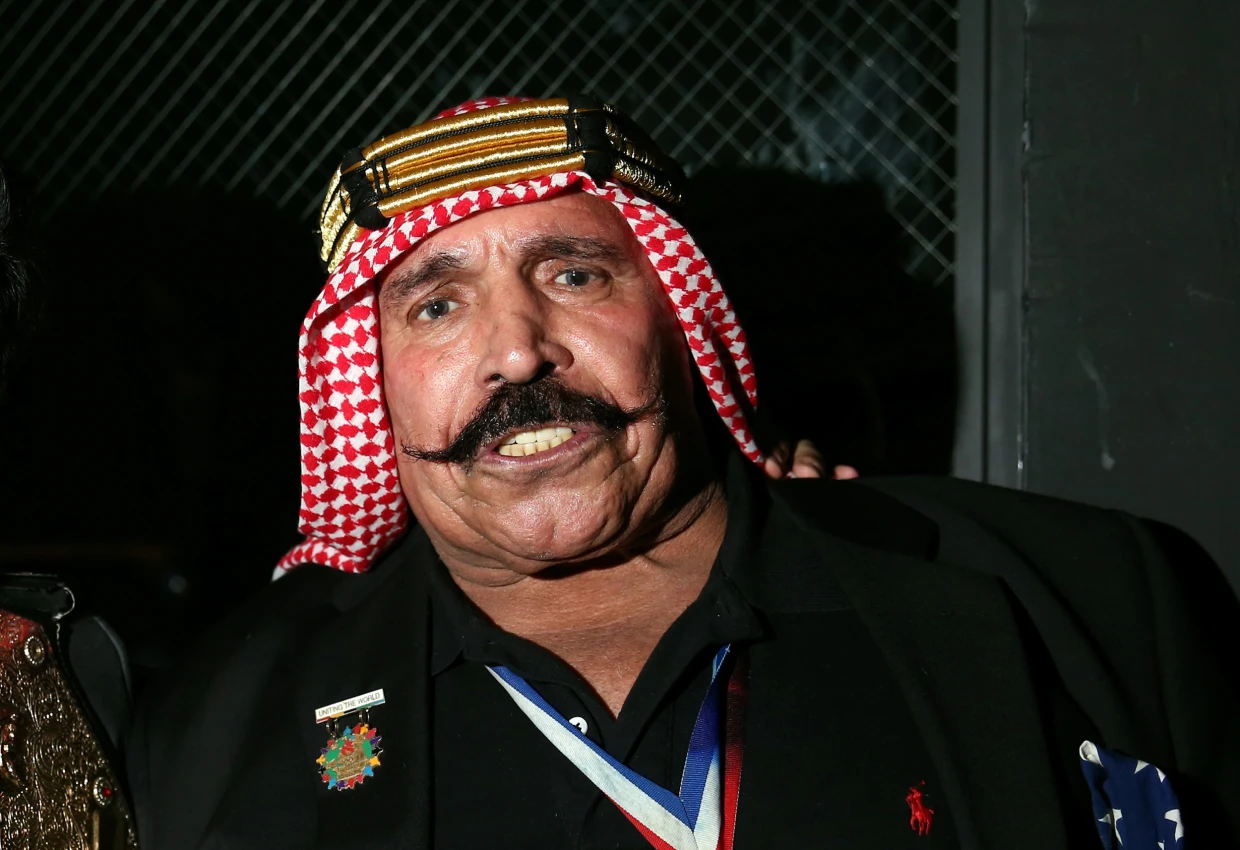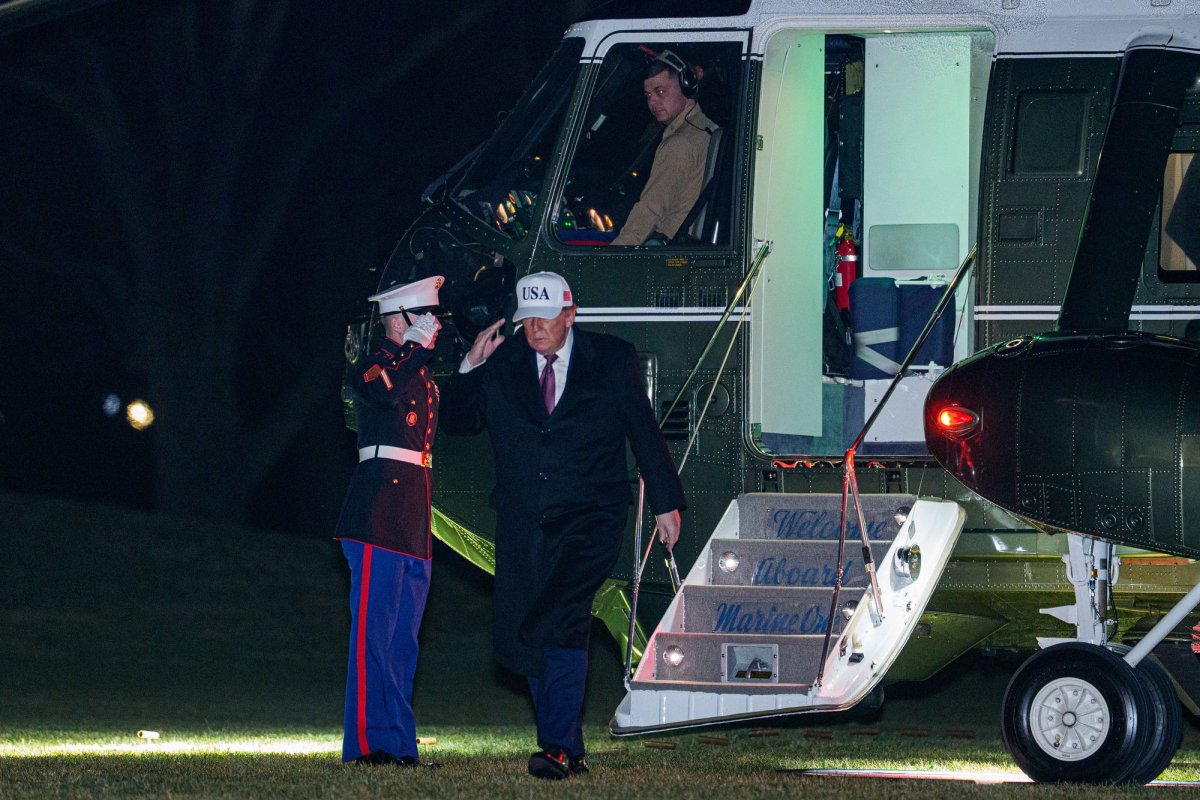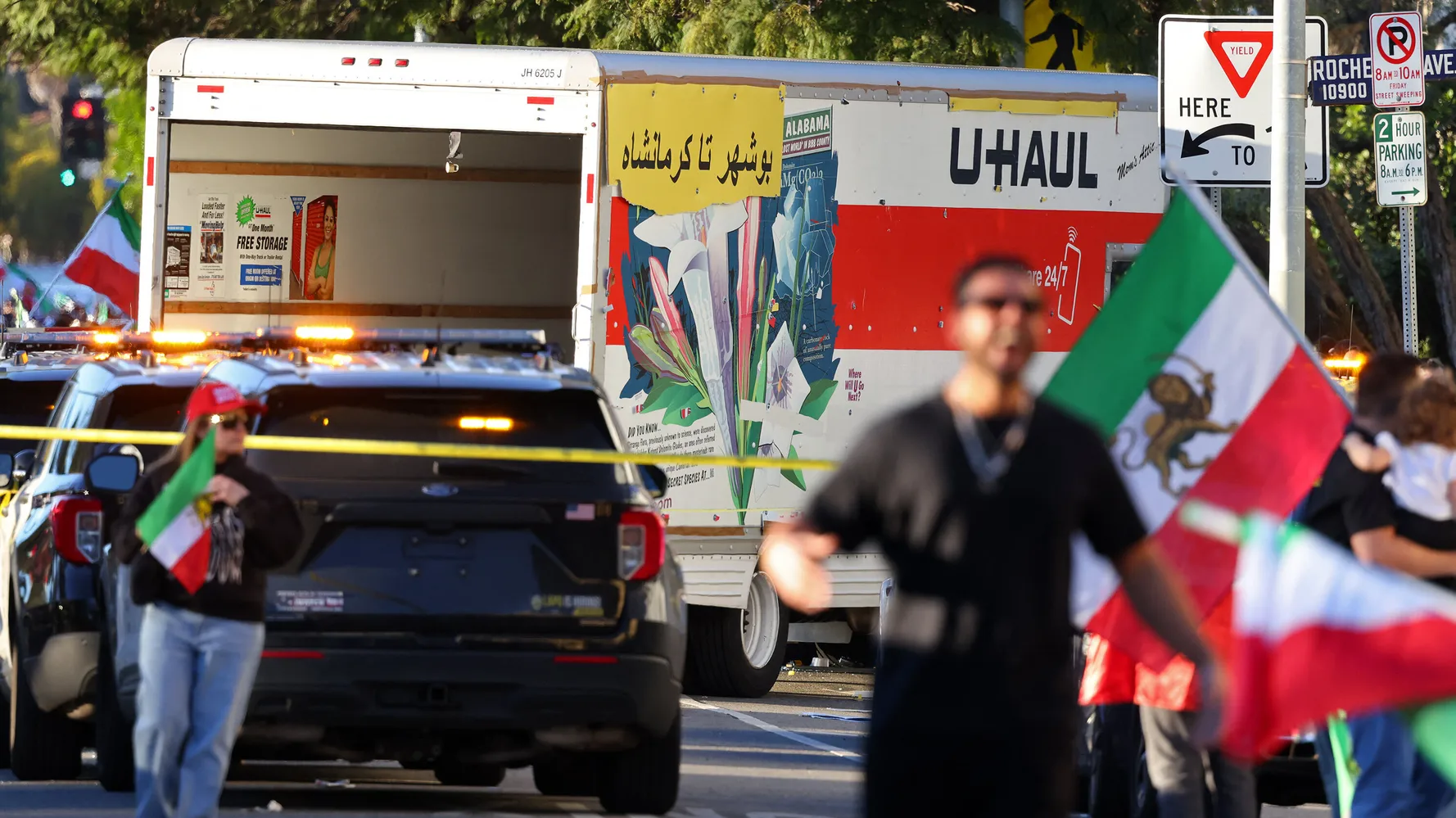Pro wrestling legend and pop culture fixture the Iron Sheik, who embraced his role as “one of the most notorious villains” in the entertainment genre’s history, has died, his team said Wednesday.
He was 81.
The announcement was made on the wrestler’s Twitter feed, which has more than 640,000 followers.
The statement did not offer any details of how the man, born Hossein Khosrow Ali Vaziri, died.
The Iron Sheik “transcended the realm of sports entertainment” with “his larger-than-life persona, incredible charism, and unparalleled in-ring skills,” which “captivated audiences around the globe,” according to the statement.
Actor and former wrestler Dwayne “The Rock” Johnson fondly recalled his childhood days with his dad, also a pro wrestler, and the Iron Sheik, their close family friend.
When Johnson broke into pro wrestling, “Uncle Sheiky” pulled him aside and told him how to handle his business as a young grappler.
“‘Let me tell you something,’” Johnson said, mimicking the Sheik’s distinct accent. “‘You come into the locker room, you sit down, you shut your mouth, you don’t say anything and you just watch and you learn. And then you [will] understand who the good people [are] and who the jabronis [are].'”
Johnson added: “As simplistic as that sounded, it was true.”
When Johnson crafted his “The Rock” wrestling persona, he frequently used the word “jabroni,” which has transcended pop culture and is now in dictionaries.
“They give me credit for it. No, no, no. The truth is all the credit goes to the Iron Sheik,” Johnson said. “That was his word. He used it.”
The Iron Sheik used colorful language throughout his career.
The all-caps tweet pinned at the top of his Twitter feed summed up his comically angry and often-profanity laced persona: “Take a minute of your day to be nice to someone you dumb son of a b—-.”
The Iron Sheik often used hilariously caustic language to address current events.
His final tweet, before the post that announced his death, referred to Canadian wildfires that have darkened skies across the northeastern U.S.: “F— THE WILDFIRES.”
“WWE is saddened to hear of the passing of WWE Hall of Famer The Iron Sheik, and extends its condolences to his family, friends, and fans,” the pro wrestling organization said in a statement.
The Iron Sheik rose to prominence as a comic foil in 1980s America, when tensions between the U.S. and Iran reached a boiling point during the hostage crisis in Tehran.
Despite the wrestler’s immense popularity, Americans of Middle Eastern descent might have suffered as a result of the Iron Sheik’s in-ring, on-screen persona, said Abed A. Ayoub, the executive director of the American-Arab Anti-Discrimination Committee.
“We express our deepest condolences to the family of Hossein Khosrow Ali Vaziri, more famously known as the Iron Sheikh,” Ayoub said in a statement Wednesday afternoon.
“While we mourn the passing of Hossein the man, we must confront the realities of his character, which was emblematic of a time period rife with misguided depictions of Arab culture. He leaves behind a complicated legacy.”
And as problematic as some elements of the Iron Sheik’s character could be — as seen through 2023 lenses — William Lafi Youmans, an associate professor of media and public affairs at George Washington University, said his childhood self is still a fan.
“As an Arab American kid in the 1980s, I was surrounded by negative Middle Eastern stereotypes on film and television,” Youmans said in a statement.
“As much as the Iron Sheik embodied stereotypes as a villain in the WWF, he was someone we could relate to and cheer on. Who else did we have in American pop culture? It was a complicated relationship. It didn’t matter that he was Iranian, we felt with him.”
(WWF was the name WWE used until 2002.)
Before he donned the garb of a comical anti-American heel, the Iron Sheik was a real wrestler, competing as an amateur in his native Iran before he moved stateside.
He achieved his American dream in late 1983, when he captured the world heavyweight belt by taking down Bob Backlund at Madison Square Garden in a “controversial” outcome, according to WWE archives.
It was a disputed title, “as Backlund’s manager Arnold Skaaland threw in the towel after Backlund refused to submit,” according to the WWE narrative.
The Iron Sheik held the title for just a month, relinquishing it to budding superstar Hulk Hogan and touching off a longtime rivalry with the Hulkster.
The Iron Sheik kept up the kayfabe act for decades, frequently and gratuitously tweeting insults at Hogan. He wrote “F–K THE HULK HOGAN!” in early 2021.
“Unlike the Middle Eastern villains in Hollywood movies, he was a developed character with a back story, a storyline, charisma and powerful wrestling moves,” said Youmans, the director of the Institute of Public Diplomacy and Global Communication at GWU.
“We imitated his ‘camel clutch’ hold when we play wrestled. Even though he stood opposite to the all-American Hulk Hogan, many Middle Eastern-American youth embraced him as our protagonist, as flawed a character as he was.”
The wrestling legend is survived by his wife of 47 years, Caryl; his children Tanya, Nikki, Marissa; and five grandchildren, according to his team.
“Iron Sheik, thank you for the memories. Thank you for paving the way for guys like me who love pro wrestling,” Johnson said. “You are a legend. You will be missed but never forgotten.”




